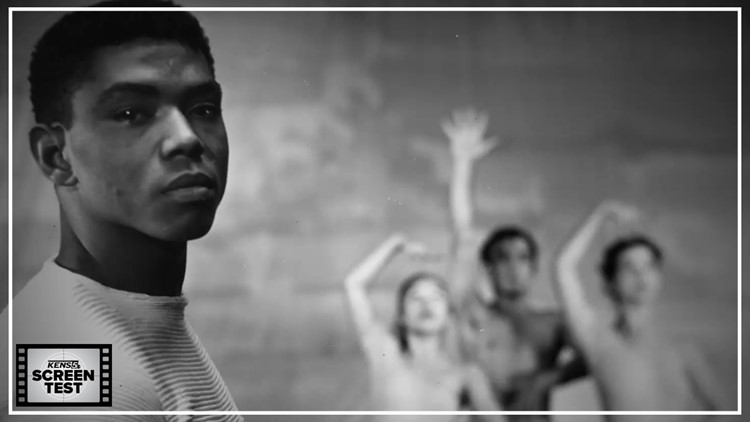There’s a bit of a contradiction we take for granted when it comes to documentaries about reputable directors, painters, actors, authors, musicians or, in the case of “Ailey,” dancers: In using art to recall an artist, we run the risk of conflating different pursuits of truth. If the filmmaker is savvy enough, the contradiction can instead become a harmony between the frame and the person we’re seeing at the center of it; if not, a reputation becomes a thing fabricated, not explored.
For all its triumphs and faults, “Ailey” is a documentary that seems aware of this awkward dynamic. And in diving into the moderately deep end of Alvin Ailey’s impact on Black Americans and liberation in choreographed motion – most memorably in the form of some magnificently edited sequences as graceful and fluid as Ailey himself – Jamila Wignot also constantly keeps one eye on her own directorial footwork by recognizing certain inner truths can only be explored so far, especially as her subject is no longer with us and hasn’t been for more than 30 years.
“Ailey” is much more than a paint-by-the-numbers tribute and a touch less than a portrait fully translating his revolutionary contributions to the form. That’s to say, Wignot doesn’t concern herself too much with the particulars of Ailey’s accomplishments – pivotal moments like his founding of the Alvin Ailey American Dance Theater in 1958 you’re expected to know about going in, as well as his most iconic dance “Revelations” – but what that allows the documentarian to do is emphasize the enduring magnitude of those accomplishments.
Through archival recordings we briefly hear him recounting a Texas childhood and the predominantly Black parties where he was first exposed to the art form that would inspire him, and while the effect of hearing the grainy audio is halfway between haunting and elegiac, it achieves a striking resonance when Wignot juxtaposes him against contemporary talking-head testimonials. Some talk about how Ailey managed to create a new space for Black Americans to access their history and emotions through dance, others recall how it became their own form of social protest. One of them puts the scope of Wignot’s task into light as clear as day: “He’s Black, and he’s universal.”
Smartly, Wignot taps the memories of older dancers for these traditional address-the-camera textures while rhythmically returning to vérité sequences observing the new generation of AAADT students learning their movements. It’s an impactful blueprint, allowing “Ailey” to organically emphasize its subject’s legacy through various levels of experience as grainy yestercentury footage bleeds into crisp contemporary images at an urban rehearsal studio. The effect is sharply noticeable but striking nonetheless, and these dreamlike sojourns orchestrated by the editing work of Annukka Lilja and Cory Jordan Wayne compensate for those moments when the introduction of a new talking head jarringly halts the momentum. The chronology of Ailey’s influence might be difficult for us to keep track of amid Wignot’s unorthodox approach, but certainly not its evolution.
But is it Wignot’s place to determine whether or not this evolution is what defined every aspect of Ailey’s life, from the opening page to the final keystrokes? She acknowledges the question to a deeper extent than most documentaries of this kind are willing to, and in doing so pivots to broader questions about legacy without resorting to the fantasy that everything Ailey was – beyond the stage and the spotlight and the millions of audience members – can be presented here. The movie is constructed around exploring his status in contemporary dance, yes, but also around the distance that impact created between the man himself and the reputation that blossomed in his absence, and Wignot manages to put these two concepts in conversation with each other through a sometimes-hazy dissonance of time and place. Some final ruminations arrive at a bit of a lurch than a nimble landing, though if the movie’s brief runtime of 82 minutes feels contradictory to the largeness of Ailey’s place in the arts, it may also be “Ailey’s” way of admitting no amount of time could capture a soul this universal. In that truth Wignot manages to locate some rough-hewn harmony with her subject—that is, the scope of his contributions has yet to be fully determined.
"Ailey" is now available via virtual cinema screenings from Neon. It's rated PG-13 for brief strong language.
Featuring: Alvin Ailey, Judith Jamison, Bill T. Jones, George Faison
Directed by Jamila Wignot
2021
MORE REVIEWS:
- ‘Annette’ Review: A whirlwind musical about art, artists and tragedy from Leos Carax
- ‘Cryptozoo’ Review: A psychedelic fantasia of mystical beasts and hand-drawn ingenuity
- ‘CODA’ Review: Heartfelt crowd-pleaser defies convention by embracing it
- ‘Days’ Review: A slow-cinema mosaic of urban isolation and tender connection
- ‘The Green Knight’ Review: The best movie of 2021 so far is a magical and masterful deconstruction of legend
- ‘Jungle Cruise’ Review: Emily Blunt, Dwayne Johnson cheerily host a voyage to nowhere
- ‘Nine Days’ Review: A poetically crafted but narratively oversimplified exploration of life’s meaning
- ‘Old’ Review: M. Night Shyamalan is back to his gloriously weird ways



